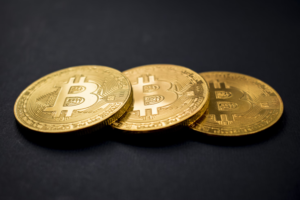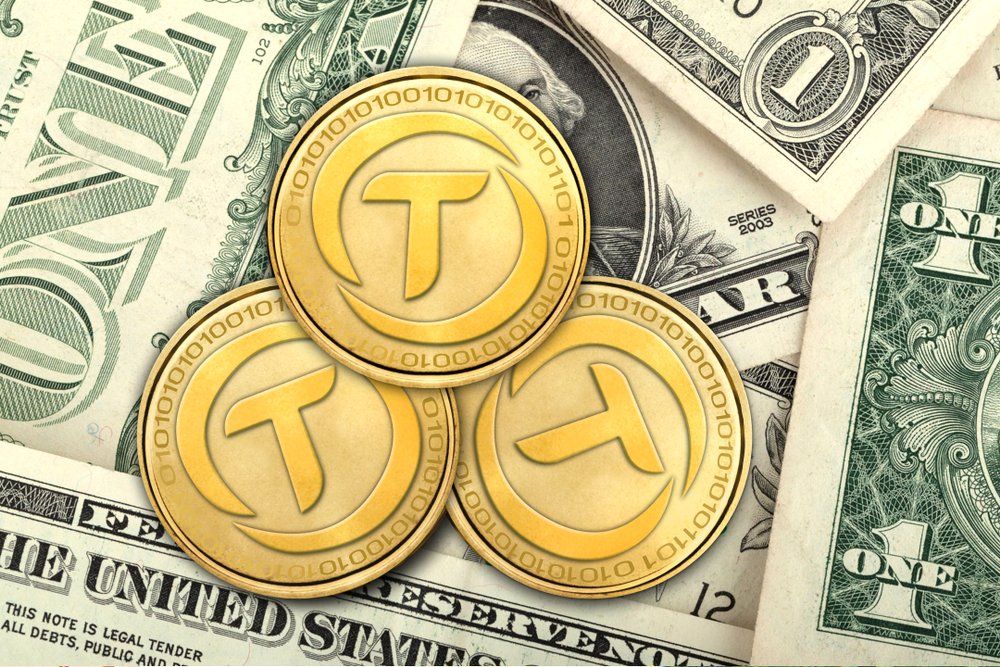The cryptocurrency exchange Debiex is facing intense scrutiny from U.S. regulators following allegations that senior staff members orchestrated romantic relationships with potential customers to deceive them and misappropriate their funds.
The U.S. Commodity Futures Trading Commission (CFTC) issued a statement on January 19, revealing that Debiex staff engaged in misleading tactics to gain the trust of potential customers before persuading them to open accounts with the exchange.
Debiex had assured customers that their funds would be invested in cryptocurrencies, but the CFTC’s complaint alleges that these funds were instead diverted for personal gain.
The complaint states, “The CFTC’s complaint alleges Debiex’s unidentified officers and/or managers cultivated friendly or romantic relationships with potential customers by communicating falsehoods to gain trust, and then solicited them to open and fund trading accounts with Debiex.”
Despite only identifying five victims over a two-year period, the regulator asserts that more than $2 million was stolen through this deceptive scheme.
The statement reads, “From approximately March 2022 through the present, it’s alleged Debiex accepted and misappropriated approximately $2.3 million from approximately five customers as part of this scheme.”
As Valentine’s Day approaches, individuals are cautioned to exercise caution.
The FBI had previously issued a warning in February 2022 about romance scammers attempting to persuade individuals to invest in cryptocurrencies during the week of Valentine’s Day.
READ MORE: Reddit Gears Up for March IPO, Anticipating Major Market Impact
These scammers have increasingly leveraged the growing popularity of cryptocurrencies to exploit victims for financial gain.
In a separate incident in May 2023, the cryptocurrency exchange Binance faced allegations of responsibility in a case where a Texas woman claimed to have been swindled out of $8 million by a man she met on Tinder.
She argued that Binance played a role by providing exchange services to the scammer. However, a U.S. judge ruled that there was no evidence implicating Binance in the theft.
More recently, romance scammers have adopted a faster and more sophisticated strategy, moving away from the traditional method of building trust through extended interactions on dating apps.
In December 2023, an emerging tactic known as targeted approval phishing was reported.
This method involves convincing victims to sign transactions, granting scammers access to their wallets and enabling them to rapidly drain funds.
In light of these incidents, it is crucial for individuals to exercise vigilance and skepticism, particularly when it comes to engaging in cryptocurrency-related activities through romantic connections or online interactions.
Interpol’s Metaverse Expert Group has unveiled a white paper suggesting that metaverse platforms could prove invaluable in the realms of law enforcement training and crime scene preservation and analysis.
The report explores the multifaceted dimensions of the metaverse, highlighting potential use cases that could benefit law enforcement agencies worldwide.
Established in October 2022, the working group has crafted a set of recommendations and guidance aimed at both preventing the misuse of metaverse platforms and utilizing them as a tool for law enforcement.
The white paper underscores various concrete applications of the metaverse for law enforcement, encompassing physical, augmented, and virtual reality elements.
One promising aspect is immersive training through metaverse environments, enhancing the effectiveness of frontline policing.
By recreating crime scenes, sharing information, and planning tactics in virtual settings, agencies can enhance situational awareness and the overall competencies of frontline officers.
Furthermore, metaverse platforms can be employed to create virtual replicas of crime scenes, facilitating continuous access and analysis.
This approach enables exhaustive examination of evidence and allows juries or judges to virtually visit crime scenes to better comprehend case context and details.
Augmented, virtual, and extended reality tools are spotlighted as transformative resources for investigations and law enforcement. Leveraging spatial perception and cognition, these tools offer immersive 3D workspaces that aid in addressing complex knowledge challenges.
The use of extended reality tools has proven crucial in cryptocurrency-related investigations, enabling visualization of transactions and token movements within virtual environments, as exemplified by services like Chainalysis.
READ MORE: Spot Bitcoin ETFs Surge Past $10 Billion in Just Three Days of Trading
The white paper also endeavors to define metaverse-related crimes and harmful actions, essential for effective policing and platform safety.
It highlights issues such as nonfungible token fraud, cyber-physical attacks, digital identity theft, 3D property and digital asset theft, child grooming, stalking, and sexual harassment.
Metacrime, particularly financial crimes, poses a growing concern in the metaverse, as more individuals shift into virtual spaces daily.
As the metaverse attracts a growing user base, it is anticipated to become a vital source of data and evidence for investigators.
Consequently, law enforcement and legal systems must adapt to this evolving landscape, learning to access data from virtual reality headsets, haptic devices, and metaverse infrastructure.
This shift necessitates training for first responders, forensic specialists, and the broader criminal justice system.
In conclusion, Interpol emphasizes that effectively addressing metacrime in the metaverse requires a holistic approach, involving multi-stakeholder engagement and cross-border collaboration.
Given the metaverse’s diverse jurisdictions, dimensions, and organizations, this collaborative effort is essential for law enforcement to stay ahead of evolving challenges and emerging threats.
On January 18th, Bitcoin mining company Hut 8 experienced a significant setback as its share price plummeted by over 23%.
This decline occurred on the same day that Hut 8 celebrated its listing on Nasdaq by ringing the opening bell.
Simultaneously, an unverified report started circulating, alleging that insiders were preparing to offload their Hut 8 stock holdings.
Hut’s share price fell sharply, dropping from $9.30 to as low as $7.10 in after-hours trading.
The decline coincided with the release of a report by JCapital Research, an activist short-selling firm, titled “The Coming HUT Pump and Dump.”
This report raised concerns about Hut 8’s recent merger with fellow Bitcoin miner US Bitcoin (USBTC), which took place on November 30, 2023.
JCapital Research, known for its short-side bias, criticized the $725 million merger, claiming that USBTC had a history of legal issues.
They also alleged that a significant portion of the merged company’s shares were held by an undisclosed related party.
According to the report, USBTC had defaulted on a loan and faced government fines for securities violations in its short existence.
Furthermore, JCapital accused USBTC’s CEO, Michael Ho, who had become Hut 8’s chief strategy officer post-merger, of concealing his association with stock promoters known as the Honig Group.
READ MORE: Celsius Transfers $125 Million in Ether to Exchanges as Repayment Plans Emerge
The Honig Group had faced accusations from the U.S. Securities and Exchange Commission in 2019, including involvement in “classic pump and dump” schemes. Honig had settled these charges and agreed to a ban on trading penny stocks.
The report’s conclusion was grim, suggesting that Hut 8 shareholders might suffer from an over-leveraged pump-and-dump scenario, ultimately holding shares in an inefficient Bitcoin mining company that remained unprofitable even with Bitcoin prices over $60,000.
The credibility of the report came under scrutiny within the crypto community, with some members expressing uncertainty about its authenticity.
This uncertainty triggered panic selling among investors, contributing to the share price decline.
Cointelegraph reached out to JCapital to validate the claims made in their report and also contacted Hut 8 for their response to the allegations.
Notably, the report coincided with the day Hut 8’s CEO, Jaime Leverton, marked the completion of the all-stock merger with USBTC by ringing the opening bell at Nasdaq’s headquarters in New York.
Unlike some other cryptocurrency miners that had to sell portions of their Bitcoin holdings due to challenging market conditions, Hut 8 reported an increase in its self-mined Bitcoin reserves.
In early January, the company revealed that it had mined 453 Bitcoin in December 2023, bringing its total reserves to 9,195 BTC, valued at approximately $377 million at current Bitcoin prices.
Bitcoin’s price is currently in a precarious position, and veteran analyst Filbfilb is warning that the cryptocurrency may have more to lose if a particular price chart pattern unfolds as it typically does.
In his recent update on X (formerly Twitter) on January 19, the founder of the trading suite DecenTrader raised concerns about Bitcoin’s descent to monthly lows.
Overnight, BTC’s price dropped to $40,600, representing a nearly 20% decline from last week’s local highs, according to data from Cointelegraph Markets Pro and TradingView.
While it subsequently bounced back above $41,000, many traders and analysts remain unconvinced of the market’s strength in the short term.
Filbfilb is among those expressing concerns, particularly with regards to the three-day timeframes.
He shared a comparative chart illustrating that when the three-day chart crosses below the daily 50-period simple moving average (DMA), it often leads to further downside.
This chart extends back to Bitcoin’s previous all-time high of $69,000, which was witnessed in November 2021.
Notably, Filbfilb has a history of successfully predicting Bitcoin’s price movements, such as foreseeing the cryptocurrency topping out at $48,000 around the time when the approval of United States-based spot Bitcoin exchange-traded funds (ETFs) was announced.
He has also set a similar price target for Bitcoin in anticipation of April’s block subsidy halving.
In the wake of the overnight dip, BTC/USD dropped below its 2024 opening price. Financial commentator Tedtalksmacro pointed out that $40,000 is the next crucial level that Bitcoin needs to hold.
Additionally, some market participants view the mid-$30,000 range as a potential bounce zone in the near future.
Popular trader Crypto Ed, who is the creator of the trading group CryptoTA, expressed caution, stating, “I think we need 1 more (smaller) leg down before we can bounce.
Last night’s bounce is not convincing me…” This suggests that market sentiment remains cautious, and traders are closely monitoring Bitcoin’s price movements.
In conclusion, Bitcoin is facing a critical juncture, with analysts like Filbfilb warning of potential downside if certain price patterns continue.
Traders are advised to exercise caution and closely watch key support levels as the cryptocurrency market remains volatile.
According to a recent report by Reuters, the social media behemoth Reddit is gearing up to embark on its maiden Initial Public Offering (IPO) in March.
This much-anticipated move is set to mark a significant moment in the company’s history and the broader social media landscape.
Based in San Francisco, Reddit is rumored to offer approximately 10% of its shares in the IPO, with its exact valuation yet to be disclosed, though it was valued at a staggering $10 billion after a successful funding round in 2021.
Should Reddit proceed with its IPO plans in March, it would be the first prominent social media IPO since Pinterest’s public offering back in 2019.
Established in 2005, Reddit swiftly became an internet phenomenon, serving as a bustling online forum where users convene to discuss an array of topics within specialized subreddits.
Moreover, Reddit has made strides in staying at the forefront of emerging technology trends, including the likes of Web3 and artificial intelligence.
The platform has not been shy about embracing cryptocurrency, becoming one of the pioneers in integrating crypto tipping features.
In 2022, Reddit made headlines by launching its nonfungible token program.
READ MORE: Crypto Rating Agencies Gain Importance in Managing Risks Amid Ongoing Industry Challenges
Nevertheless, the company encountered backlash when it revealed plans to charge businesses for access to its Application Programming Interface (API), a vital tool for tech companies in training large AI language models.
Insider sources cited by Reuters divulged that Reddit confidentially filed for its IPO in December 2021, with intentions to make its public filing in late February, followed by an official launch in early March.
The decision to go public was reportedly delayed until the company reached profitability, marking a strategic move.
The bulk of Reddit’s revenue stems from advertising and premium subscription plans, with an estimated $800 million in advertising revenue anticipated for 2023, as reported by Reuters.
However, it is worth noting that, as cautioned by Reuters in its report, the IPO timeline may face potential delays, echoing past occurrences.
These setbacks may be attributed to a multitude of factors, as the company navigates the complexities of the IPO process and reacts to evolving market conditions.
Nevertheless, Reddit’s IPO remains a highly anticipated event that could potentially reshape the landscape of social media finance, much like its predecessors.
TrueUSD (TUSD), the stablecoin associated with Tron founder Justin Sun, has faced challenges maintaining its dollar peg and recently took measures to address this issue.
On January 15, TUSD experienced a significant drop in value, falling to $0.984 at 11:15 pm UTC.
This depreciation coincided with traders selling more than $339 million worth of TUSD on the Binance exchange within a 24-hour period, resulting in a net outflow of $42.3 million from the exchange.
Some users on X (formerly known as Twitter) speculated that TUSD’s loss of peg might be linked to its exclusion from Binance’s Manta launch pool initiative.
Additionally, reports emerged on January 10, suggesting that TUSD struggled to provide real-time attestations of its reserves, causing concerns among investors and the crypto community.
In response to the depeg event, the TrueUSD team took action by upgrading its fiat reserve audit system.
They enlisted the services of Moore Hong Kong, an accounting firm, to provide daily attestations of the stablecoin’s fiat reserves.
Moore Hong Kong’s involvement supplements the existing services offered by The Network Firm. Under this new system,
TrueUSD committed to providing comprehensive reports, including details about the reserve funds held by their financial partners.
READ MORE: South Korea Explores Sanctions on Cryptocurrency Mixing Services
Michelle Chu, an executive at Moore Hong Kong, stated that they would work in collaboration with The Network Firm to enable TUSD users to monitor the stability of the coin’s reserves.
Despite these efforts to enhance the transparency and trustworthiness of its reserve system, TUSD’s price continued to decline.
As of the latest available data, on January 18, TUSD’s price dropped as low as $0.97, according to CoinMarketCap, a platform that tracks cryptocurrency prices.
However, at the time of this publication, TUSD’s price has slightly recovered, hovering around $0.99 on both CoinMarketCap and the Binance exchange.
In conclusion, TrueUSD has faced challenges in maintaining its peg to the US dollar, which has triggered actions to improve its fiat reserve audit system.
These efforts, including daily attestations by Moore Hong Kong, aim to restore confidence in the stablecoin’s value and stability within the crypto market.
The Dutch government is taking a significant step towards bolstering its presence in the world of artificial intelligence (AI).
On January 18th, the Ministry of the Interior and Kingdom Relations announced that they would allocate a substantial budget of 204.5 million euros ($222.07 million) to promote local investments in AI.
This initiative aims to prevent the Netherlands from falling behind in the global AI race, with Asia and the United States already leading in the responsible use of generative AI technologies.
One of the primary goals outlined in the announcement is to position the Netherlands and the European Union as competitive players in the development of AI technology.
The government recognizes the need to stay ahead of the curve and not remain passive observers in the AI landscape.
To achieve this, the Dutch government intends to channel these funds into various initiatives and campaigns.
One key aspect of their strategy is to educate the public about safeguarding their data from generative AI.
This step reflects their commitment to ensuring that AI technologies are used responsibly and ethically.
Simultaneously, they are exploring the creation of a secure and functional national AI testing facility, which would be available for public use.
The Dutch government is also cognizant of the risks associated with AI, such as misinformation and potential job displacement.
READ MORE: Crypto Rating Agencies Gain Importance in Managing Risks Amid Ongoing Industry Challenges
To address these concerns, they plan to implement measures that balance the benefits of AI while mitigating its negative impacts.
Furthermore, the government has pledged to adhere to the European Union’s AI Act, a regulatory framework governing the governmental use of AI and establishing rules for market entry.
In December 2023, the European Parliament and Council reached an agreement on a risk-based model for AI regulation, which is currently in the final stages of formal enactment.
Dutch Minister for Education, Culture, and Science, Robbert Dijkgraaf, emphasized the importance of developing and retaining AI talent to create generative AI systems that align with European standards and values.
Additionally, the government is considering investments in significant scientific and technological resources, such as supercomputers.
These investments would not only benefit the Netherlands but also contribute to the EU’s competitiveness in the field of large language models (LLMs) and other generative AI technologies.
As the Dutch government propels its AI agenda forward, it aims to strike a balance between innovation, ethical considerations, and global competitiveness.
ProShares, a prominent issuer of exchange-traded funds (ETFs) in the United States, is gearing up to introduce a range of Bitcoin ETFs, offering indirect exposure to Bitcoin as the era of spot Bitcoin ETF trading takes off on domestic stock exchanges.
In a filing submitted to the U.S. Securities and Exchange Commission (SEC) on January 16, ProShares outlined its plans to launch leveraged and inverse Bitcoin ETFs.
These ETFs aim to generate daily returns based on the fluctuations in Bitcoin’s price, which are determined by the daily performance of the Bloomberg Galaxy Bitcoin Index (BGCI).
ProShares has put forth proposals for five distinct Bitcoin ETFs, including the Plus Bitcoin ETF, Ultra Bitcoin ETF, UltraShort Bitcoin ETF, Short Bitcoin ETF, and ShortPlus Bitcoin ETF.
The Plus Bitcoin ETF and Ultra Bitcoin ETF from ProShares aspire to mirror a 1.5x and 2x increase, respectively, in daily BGCI performance.
Conversely, the other three funds, namely ProShares UltraShort Bitcoin ETF, ProShares Short Bitcoin ETF, and ProShares ShortPlus Bitcoin ETF, are designed to reflect daily returns inversely correlated to the BGCI at -2x, -1x, and -1.5x, respectively.
READ MORE: Rosario Witnesses Historic First as Tenant Pays Monthly Rent in Bitcoin
It’s important to note that these funds do not engage in direct shorting of Bitcoin; instead, ProShares aims to capitalize on price declines in Bitcoin.
At the time of filing, Bitcoin was trading at approximately $43,000, following a notable downturn subsequent to the introduction of spot Bitcoin ETFs in the United States.
Market analysts, such as ARK Invest CEO Cathie Wood, had previously anticipated a short-term sell-off as some investors looked to capitalize on the positive developments.
This announcement comes shortly after the U.S. SEC’s approval of the first batch of 10 spot Bitcoin ETFs on January 10, with trading commencing on January 11. ProShares did not participate in the initial launch of spot Bitcoin ETFs.
Previously, ProShares had been primarily focused on futures-based crypto ETFs, notably introducing one of the first Bitcoin futures-linked ETFs in the U.S. back in October 2021.
Their flagship BTC futures-based product, the Bitcoin Strategy ETF (BITO), has experienced substantial growth over recent months, briefly surpassing $2 billion in assets under management (AUM) for the first time in January 2024.
In addition to BITO, ProShares currently offers a range of ETFs related to cryptocurrency, including the Ether Strategy ETF, Bitcoin & Ether Market Cap Weight Strategy ETF, and the Bitcoin & Ether Equal Weight Strategy ETF.
Manta Network, a layer-2 blockchain powered by zero-knowledge proofs, recently faced a significant distributed denial-of-service (DDoS) attack while simultaneously enjoying a successful token listing on various exchanges.
The attack occurred on January 18 but has since been successfully resolved.
Kenny Li, one of the co-founders of P0xeidon Labs, the cryptographic development team responsible for Manta Network, reported that the blockchain’s nodes endured an onslaught of over 135 million remote procedure call (RPC) requests during the attack.
He described it as a “very aggressive and timed attack.” Fortunately, Li reassured the community that the blockchain’s security remained intact, and users’ funds remained safe.
However, the attack temporarily disrupted communication between apps and the blockchain.
Despite the challenges, Li expressed gratitude for the community’s support and emphasized their commitment to the project, noting that they had dedicated three years to its development.
Simultaneously, Manta tokens were listed on several prominent exchanges, including Binance, Bithumb, and KuCoin.
The Manta token’s initial trading price stood at $2.27, reflecting a fully diluted market capitalization of $2.27 billion.
READ MORE: Bitfinex Foils $15 Billion XRP Exploit Attempt as Security Measures Prevail
In the first few hours of trading, over $686 million worth of Manta tokens changed hands.
A spokesperson for Manta Network disclosed that Manta Pacific, another component of the project, experienced a remarkable 70x increase in total value locked (TVL) during the past quarter, reaching a value of $858 million.
Furthermore, the project announced an airdrop equivalent to 5% of Manta’s total supply, valued at $114 million, for ecosystem users and supporters.
Back in July 2023, Cointelegraph reported that P0xeidon Labs successfully raised $25 million in its Series A funding round.
Additionally, the team introduced the testnet for Manta Pacific, its layer-2 infrastructure, which transitioned to the mainnet on September 12, 2023.
The testnet launch in July 2023 led to the creation of 150,000 wallets and facilitated over 3.5 million transactions.
In a parallel development, Manta Atlantic’s flagship nonfungible token private offering platform made its debut in April 2023.
Since then, it has minted over 300,000 zero-knowledge soulbound tokens in collaboration with key ecosystem partners, including Arbitrum, Galxe, Linea, and CyberConnect.
Nathaniel Chastain, the former product manager of the nonfungible token (NFT) marketplace OpenSea, has launched an appeal against his conviction for wire fraud and money laundering related to insider trading.
Chastain’s legal team submitted a filing to the United States Court of Appeals for the Second Circuit on January 16, arguing that he should be acquitted because the U.S. government failed to demonstrate that the information concerning NFTs on the OpenSea platform qualified as property.
According to his lawyers, this information lacked commercial value to the platform and did not fall under the category of “protected property.”
The appellate brief emphasized that not all confidential information could be considered property and that confidential information must possess commercial value to its owner.
It clarified that OpenSea’s primary revenue source was commissions earned from NFT transactions on its website, rather than monetizing Chastain’s ideas about which NFTs to feature.
The filing further pointed out that OpenSea benefited from Chastain’s trading activities, as the platform earned commissions when he utilized it for purchasing and selling the featured NFTs.
During his 2023 trial in the U.S. District Court for the Southern District of New York, prosecutors presented evidence to establish that Chastain had the authority to select the NFTs to be featured on the OpenSea website.
READ MORE: Launch of Bybit Web3 Swap Accelerates DeFi Revolution
He had acquired 45 NFTs before their inclusion and subsequently resold them for Ether.
In May 2023, Chastain was found guilty of wire fraud and money laundering, resulting in a three-month prison sentence and a $50,000 fine.
The judge granted him until November 2 to surrender himself to authorities. The appellate filing now requests that Chastain’s conviction be overturned or replaced with a new trial.
Chastain’s appeal centers on the crucial argument that the information he used for insider trading did not constitute protected property, challenging the foundation of his conviction.
The outcome of this appeal could have broader implications for the legal treatment of insider trading in the context of NFTs and digital assets.











